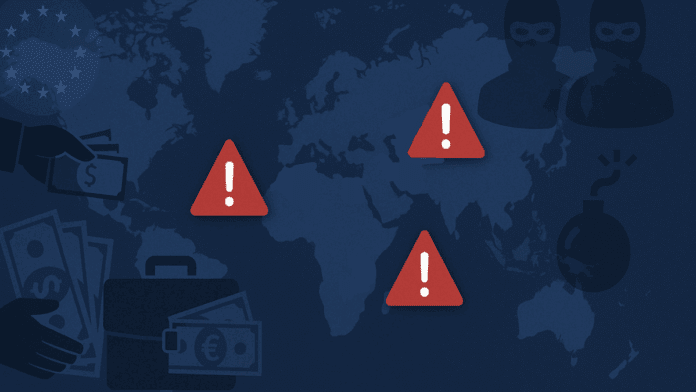The European Commission has made a major update to its list of countries considered risky when it comes to fighting money laundering and terrorist financing.
EU Raises Red Alert on 10 Countries Over Financial Threats
In this latest move, ten new countries have been added to the EU’s official list of high-risk jurisdictions. This means that financial institutions across the European Union will now be required to take extra precautions when dealing with businesses or individuals from these nations.
The countries newly added to this high-risk list are Algeria, Angola, Côte d’Ivoire, Kenya, Laos, Lebanon, Monaco, Namibia, Nepal, and Venezuela. These countries have been flagged because of “strategic deficiencies” in how they prevent illegal money flows and terrorist funding.
The goal of this list is to protect the EU’s financial system. When countries are listed, EU banks, investment firms, and other financial institutions must apply tighter checks during transactions. This includes extra background checks, more paperwork, and closer monitoring of financial flows to and from these nations.
This step is part of a wider plan to make sure that money within the European Union is clean and does not end up supporting crime or terrorism.
FATF Slams Pakistan Over Hidden Missile Shipments – Will India Push for Greylisting?
Some Countries Removed After Making Progress
While ten new countries have been added, the Commission has also removed several others from the high-risk list. These include Barbados, Gibraltar, Jamaica, Panama, the Philippines, Senegal, Uganda, and the United Arab Emirates (UAE).
These countries have shown improvements in how they tackle money laundering and terrorism financing. They have taken steps to strengthen their systems and work more closely with global financial bodies. Because of this progress, they are no longer seen as posing a high threat to the EU’s financial safety.
This update is part of a regular review done by the European Commission. It looks at how countries around the world manage financial crime risks and whether they meet international standards. The review follows a detailed set of rules and is based on actual data, meetings with officials, and even on-site inspections.
Philippines Nears Grey List Exit Following Strong FATF Review
EU Acts in Line with Global Watchdog FATF
The changes to the EU’s high-risk list are in line with the work of the Financial Action Task Force (FATF). FATF is a global organization that sets standards to fight money laundering and terrorism financing. It also keeps its own list of countries that need to improve in these areas.
The EU, as a founding member of FATF, works closely with the group. This includes tracking the progress of flagged countries and helping them to improve their systems. By keeping its list in sync with FATF’s, the EU helps maintain global financial security standards.
The update is carried out under Article 9 of the 4th Anti-Money Laundering Directive (4AMLD). It becomes legally binding through a delegated regulation. But before it officially takes effect, it must go through a one-month review by the European Parliament and the Council. This review period can be extended by another month if needed.
The European Commission also stated that this review was done using a strong and clear method. All decisions were made based on well-defined rules, using real-world data and technical checks. The process also took into account feedback and earlier concerns to make sure the list is fair and accurate.
This action shows the EU’s strong stand against money laundering and terrorism financing. It also sends a message that countries must take their financial responsibilities seriously, or face tighter restrictions from one of the world’s largest economic zones.
